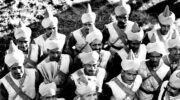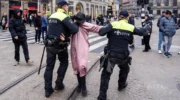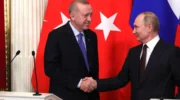DONETSK REGION, Ukraine — Night after night, the soldiers’ memories haunt them.
Mykyta Ivanov, 22, dreams that his tank commander — who burned alive in May — returns with his skin charred, shouting: “Come on! We have to do something!”
Yevhen Bas, 26, an airborne paratrooper, jolts awake in a cold sweat, believing he is “completely split in two.”
Andriy Dobrovolskyi, 47, an infantry soldier, imagines he has just stepped on another mine. He wakes searching for his feet, then remembers he only has one left.
After more than a year of war, Ukrainian soldiers are experiencing intense symptoms of psychological stress, including nightmares, poor sleep, guilt, anxiety and panic attacks, according to interviews with troops across Ukraine and psychologists treating them. Some soldiers have turned their weapons on themselves, dying by suicide. Others are suffering quietly in hospitals and on military bases, during visits home and on the front lines, where they face a constant threat of Russian attacks even as their symptoms are triggered or worsened by concussions from artillery shelling.
The problem is debilitating, widespread and excruciatingly difficult to treat in a country that — even away from its battlefields — is under constant threat of attack. Although often invisible, widespread fatigue and mental trauma among soldiers is yet another difficult challenge Ukraine’s military must confront as it tries to defend the country against the continuing Russian onslaught.
Like the number of its dead and wounded, which is classified, the military does not reveal how many soldiers are suffering, but it is also not clear that anyone has tried to count.The toll, however, is undoubtedly worsening as Ukraine remains entrenched in the bloodiest battle of the war in the eastern city of Bakhmut, where Russia has sent waves of mercenaries and both sides are suffering enormous losses.
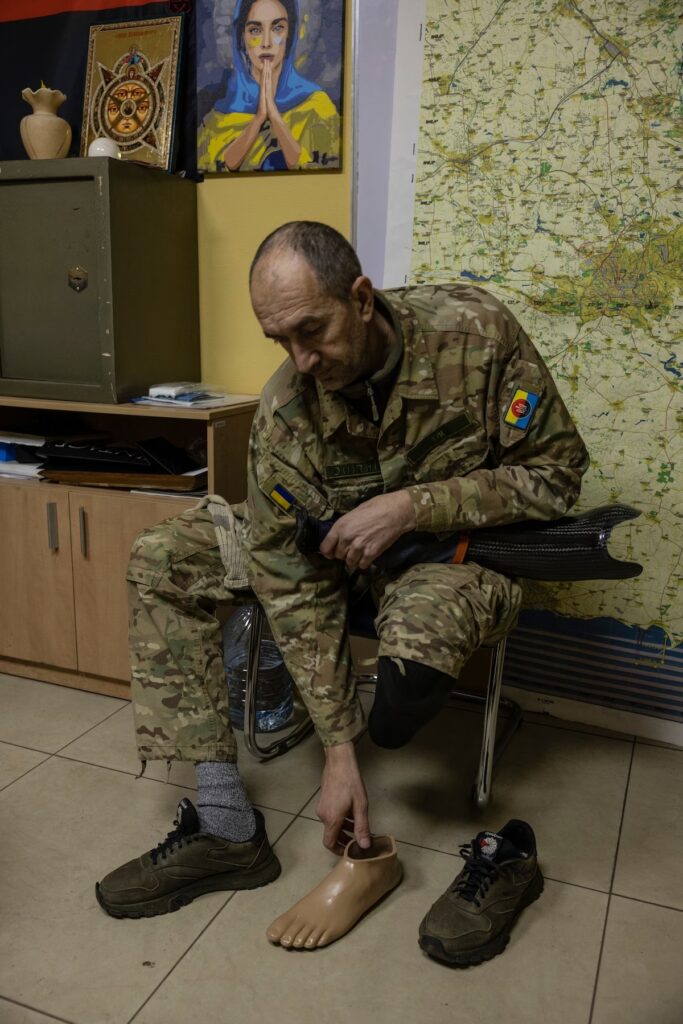
Across the country’s eastern front lines, some panicked Ukrainian soldiers have abandoned their positions. Others suffering from severe stress said they are reluctant to ask for time to recuperate, knowing Russia — with a population more than three times that of Ukraine — has more available reinforcements. Even those who have had mental health treatment said they were sent back almost immediately into combat.
In Ukraine, as in many places, openly discussing mental health is still considered taboo — especially for men and more so for soldiers. And with high numbers of troops physically wounded and killed each day, many soldiers say they are reluctant to speak up about the war’s mental toll.
“It’s a pain and a suffering you bestow upon someone else,” said Dobrovolskyi, who was having nightmares even before losing his left foot on a mine outside the northeastern city of Izyum in December while on a mission to retrieve dead soldiers’ bodies. He does not remember ever openly sharing details of his dreams — so vivid he could at times feel the heat of imaginary weapons whooshing by — with his fellow troops. “You don’t know how they’ll process it,” he said, “or if they’ll want to go back to war with you by their side.”
Ukrainian troops say they are reconciling with the ways combat has changed them. Some are experiencing moral injury, which occurs when forced to witness or participate in actions that go against personal values, including ethically disagreeing with orders or being unable to save colleagues who are then killed or taken prisoner.
Yehor Firsov, 34, lost 16 people in his brigade in recent weeks — including two by suicide. Most of the soldiers he knows, he said, are exhibiting symptoms of extreme stress.
“I always have tension. I am waiting for shelling,” he said. After surviving his first shelling attack, he said, he experienced such an adrenaline rush that he felt happy. He didn’t sleep for three days. “Then it overtakes you,” he said. He has heard one friend — who always appears calm under shelling — screaming in his sleep about Grad rockets.
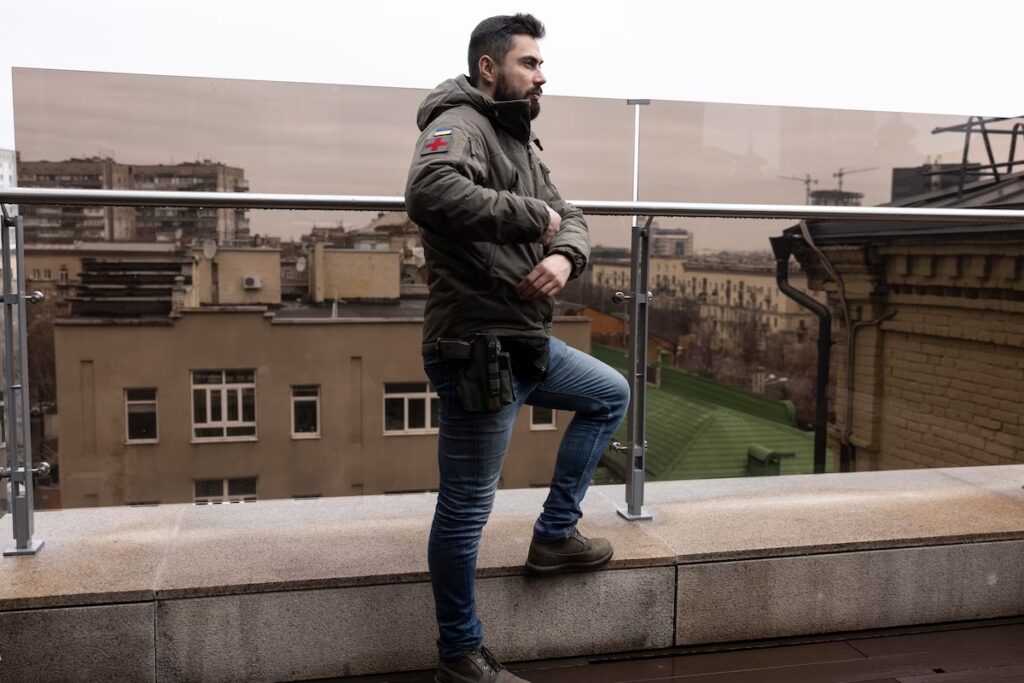
Even on breaks, Firsov said, he can never disconnect from the war. “If it’s raining, I will think about water in the trenches,” he said. When photos from before the war pop up on his phone, he hardly recognizes himself.
With limited army psychologists available, some civilian psychologists, like Oleksandr Fedorets, 62, are treating Ukrainian soldiers, in his case at a hospital in the Dnipropetrovsk region, away from the front.
A crisis psychologist, Fedorets treats soldiers for acute stress reaction, a condition that causes nausea, fast heart rates and headaches.
Some of his patients leap to the ground or hide under their beds when they hear loud sounds. Many cannot sleep. They are suspicious of silence or of civilians who they worry are Russian collaborators. Their fears are both immediate and long-term.
“They’re afraid to fall asleep because they’ll lose control, and they’re used to shelling at any moment,” Fedorets said. “They’re scared they’ll be psychologically damaged and unable to return to civilian life.”
Concussions can compound their symptoms, causing headaches, ear pain, and loss of memory and attention span.
His therapy sessions include distraction and breathing techniques. He often performs spontaneous group therapy, moderating conversations between wounded soldiers that allow them to share their worries with one another. Often, after a week of mediation, soldiers will feel good enough to return to the fight, he said.
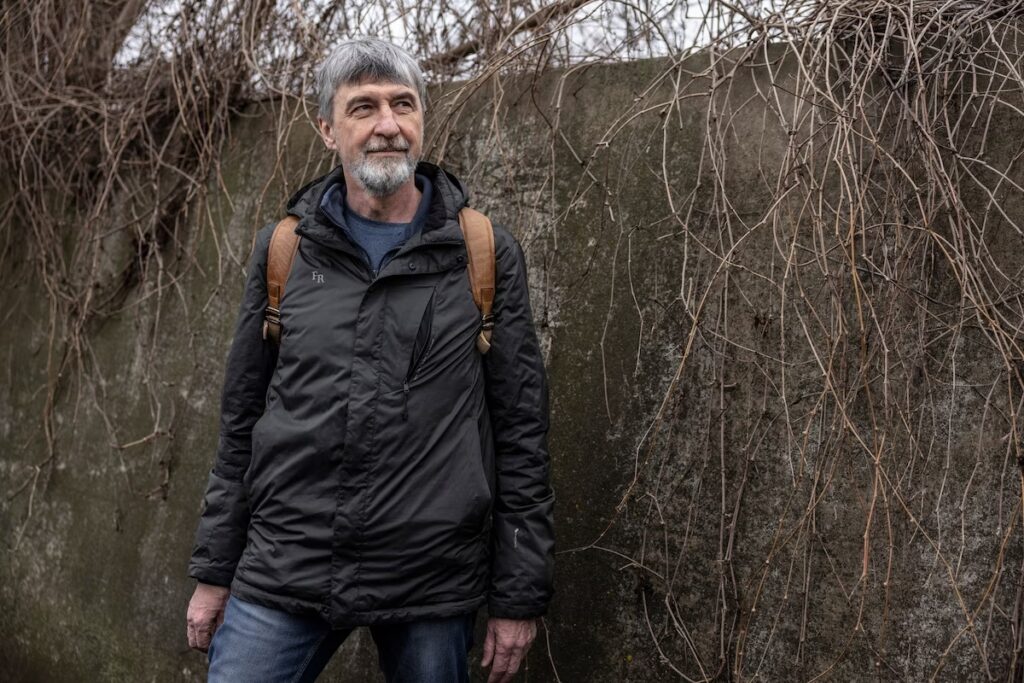
On the front line, some Ukrainian soldiers are trained to play a similar role.
Ivanov, who serves as his company’s deputy commander for moral and psychological support, is responsible for launching artillery attacks on Russian troops and has regularly come under fire. He is also in charge of discreetly monitoring his fellow soldiers’ mental health.
Last fall, he came across a drunk soldier holding a grenade and threatening to kill himself. It took four hours to talk him down. “At the end, he started crying,” Ivanov recalled. “He handed me the grenade and went to bed.”
Ivanov’s experience helping others has helped him recognize his own symptoms. “It’s easier to live through PTSD when you understand what’s happening with you,” he said.
After his commander died in the city of Lyman last spring, Ivanov recalled thinking, “Why wasn’t I there? I could have tried to do something to help him.” It took weeks — and anti-anxiety medication — to shake a feeling of “intense apathy,” he said.
Months later, when Ukrainian forces retook Lyman, Ivanov found his commander’s burned-out tank among the wreckage left behind. “I nearly started to weep,” he said.
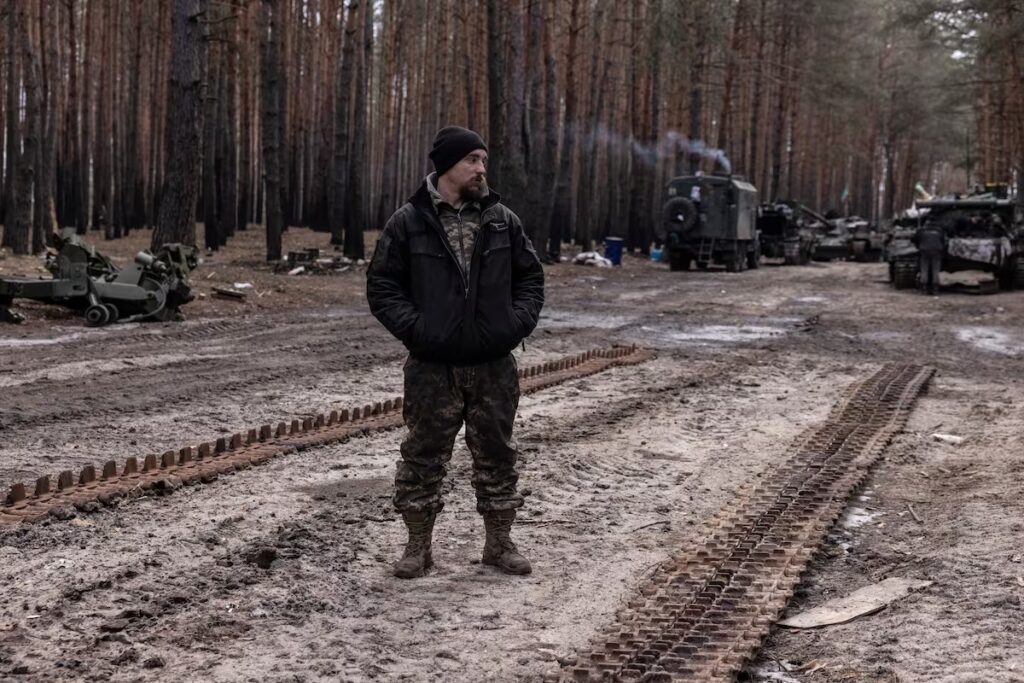
Kyryl, 24, a tank unit commander in the same brigade as Ivanov who only gave his first name, said he has “very vivid nightmares where I wake up screaming.” Oleksandr, 34, another tank unit commander in their brigade, described the war as “morally very difficult.”
“There’s constant stress. A fact is a fact: the bad dreams are there,” Oleksandr said.
Many troops have gone all year with only a few days’ break at home.
At a field hospital in the Donetsk region, combat medic Vesna, 48, who spoke on the condition that she be identified only by her call sign, which means “spring,” said the soldiers she treats are often “bad sleepers, nervous, anxious, morally sick, worn out and their backs hurt.”
Some have symptoms such as headaches and mood swings, which are also commonly caused by concussions. But the soldiers rarely rest long enough to recover before returning to the front. “All some need is for someone to sit next to them and talk to them. But we don’t have time for that,” Vesna said.
Another medic in the hospital, who goes by the call sign Thirteen, said resources are so limited that “if we have two soldiers coming to us, one with physical trauma versus one with mental trauma — even if he just saw his friend killed in front of him — he won’t get the same aid, even if he needs it.”
Thirteen is 24 years old, and her only sibling — a 22-year-old brother — was killed on the front line last month. She took just five days off. Talking about it, she said, feels like pressing on a bruise instead of letting it heal. “If I fall apart now, I won’t be able to give what I need,” she said.
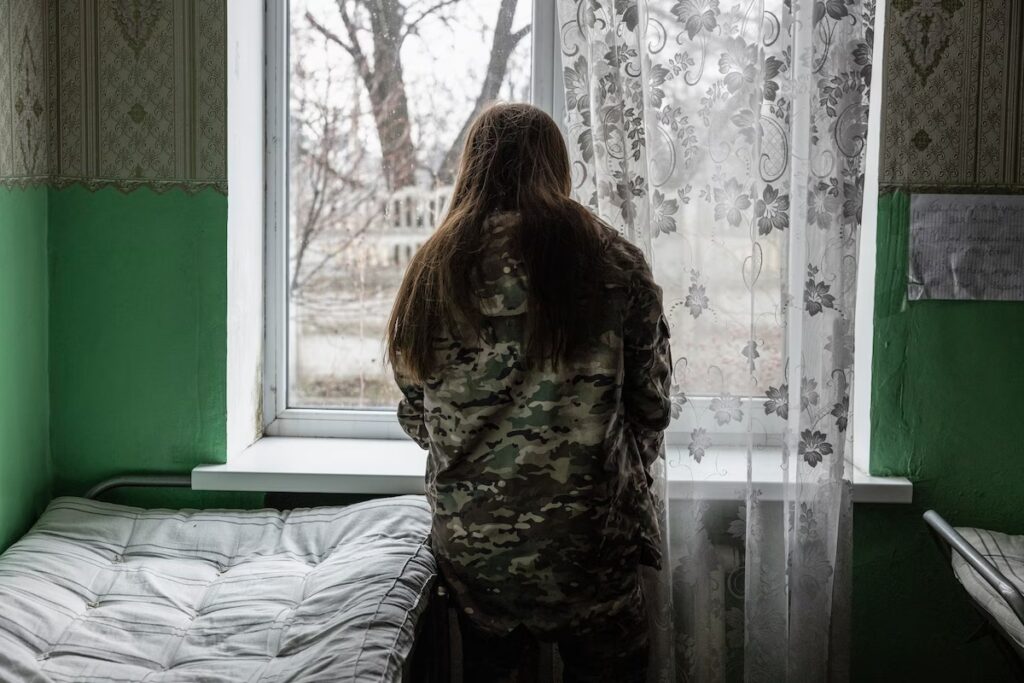
Roman, 38, a military doctor who asked to use only his first name to avoid retaliation, said he was diagnosed with post-traumatic stress disorder in 2015 while tormented by nightmares on a brief break from the front.
He redeployed after the Feb. 24 invasion, but deserted last spring, alleging his higher-ups asked him to sell donated medical supplies for cash. Instead, he has continued as a volunteer doctor traveling into the most intense fighting zones to treat and evacuate patients — most recently from Bakhmut.
Roman said he still experiences nightmares and intense mood swings. He cannot ride on public transit because he fears overhearing people discuss the war. “A week ago I shoved a gun into my mouth,” he said.
He has, at times, resorted to alcohol to deal with the stress. After a fellow soldier died in an explosion, he searched a radius of one kilometer for her leg and couldn’t find it. At her burial, her son asked where the leg was. “One beer and a vodka was not enough to get over that,” he said. “Slavic nations are taught to hang in there, especially Ukraine.”
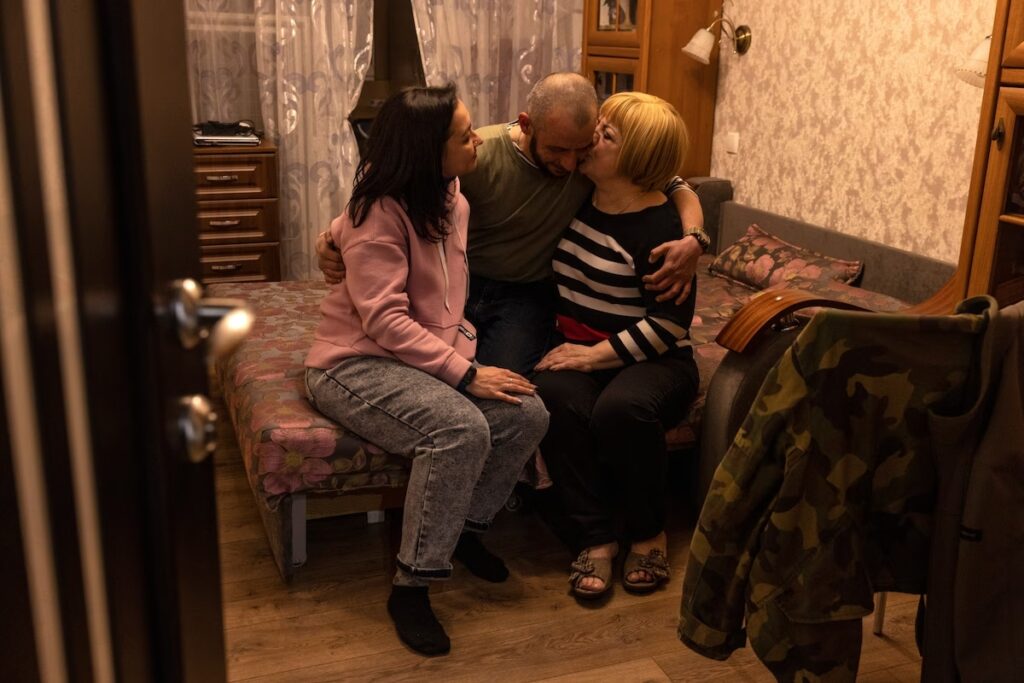
Army psychologist Andriy Kozinchuk, 38, said the pressure for soldiers to be the country’s “heroes” adds to their stress. Two men have died by suicide in his battalion since Feb. 24, including one who shot himself when he couldn’t find painkillers. “We have a big problem asking for help,” Kozinchuk said.
Psychologists like him, he said, “exist like a little bridge” between military and civilian life.
Oleksandr Vasylkovskyi, 43, deployed to the country’s east in 2014, where he witnessed soldiers’ stress firsthand. When Russia launched its full-scale invasion last February, he feared Ukraine would once again fail to adequately support returning troops and “repeat the same mistakes.”
Using donations, he established a new retreat facility in the Kharkiv region for active duty troops.

Since June, about 100 soldiers have convened in a converted medical facility each week, many coming straight from the country’s harshest front lines.
For seven days, they can set aside their immediate fears. They relax in salt chambers and participate in aromatherapy and meditation sessions. They swim in a heated pool. Their families are invited to stay with them — offering a rare chance to reconnect after months apart.
Maksym Bayda, 34, an army psychologist who has deployed to the front line, is treating soldiers at this facility. About 2,500 have completed the week-long program since last summer. More than 10 percent arrive with some suicidal thoughts, he said. Half are now coming from fierce battles in the area around Bakhmut.
What they fear most, Bayda said, “is the repeating of past trauma.”
“They are going to go back and they fear they will be shelled again or lose friends again,” he said. “The tiredness adds to their anxiety.”
“One guy said ‘I’ve killed 35 people. I can’t forgive myself. I can’t live like this,’” Bayda recalled.
After the war, he hopes to spend more time helping traumatized troops recover. But with the country under attack, he tries only to “stabilize them so they can return back to their unit to execute commands.”
Outside, a soldier who goes by the call sign Katran took a walk with his wife and two young daughters. Until this brief retreat, they had only 10 days together in the past year.
“I feel better,” he said. “But I’m not ready to go back [to the front].”
Inside, Ivan Hrebin, 57, splashed around in the heated pool. After just five days in the facility, he said, he was starting to feel recharged. He was sleeping better. His stress had lifted. His headaches had dissipated. He wished he could stay longer.
He expected soon to be back under shelling and to feel the fear come back in waves. But his short break left him feeling recharged enough to believe he could handle it.
“Being fearless would make you a good warrior,” he said. “But having fear is what keeps you alive.”
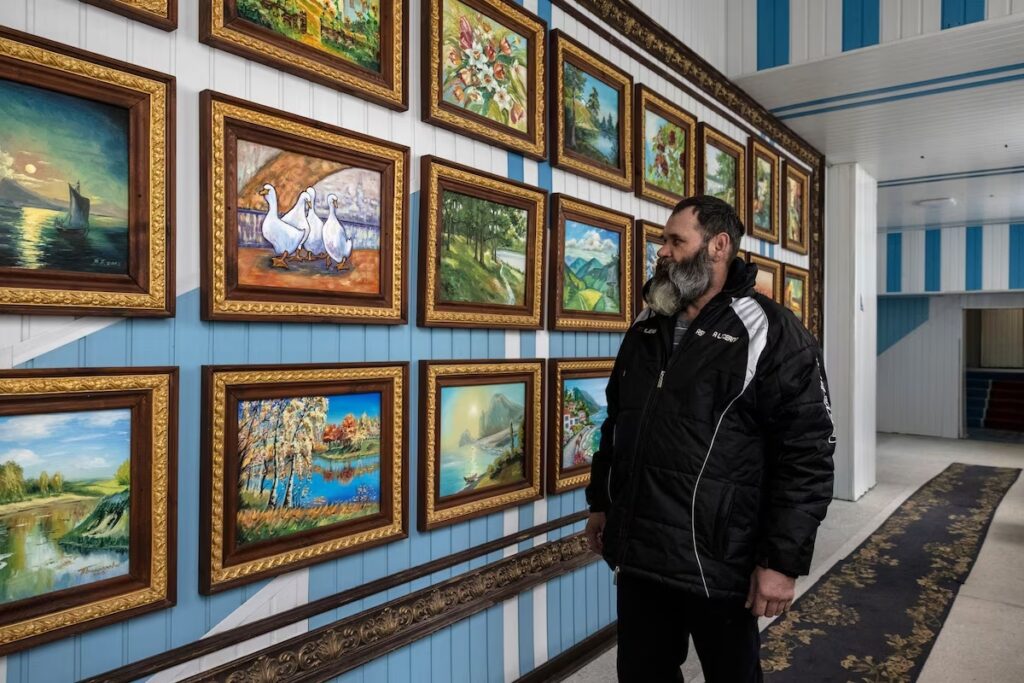
By Siobhán O’Grady
Siobhán O’Grady is The Washington Post’s Cairo bureau chief, covering North Africa and Yemen.






